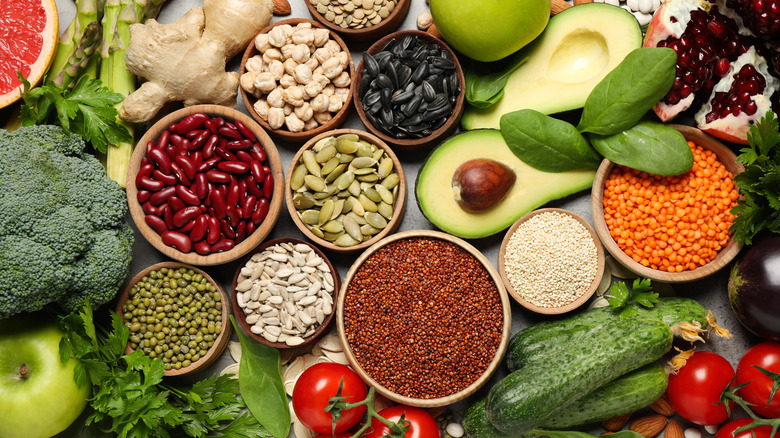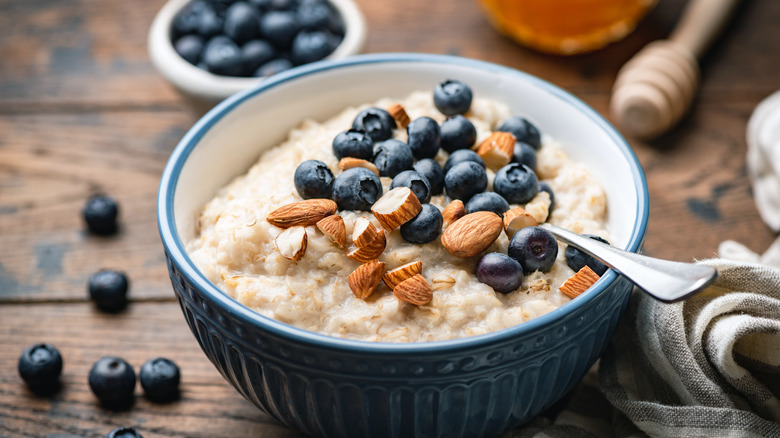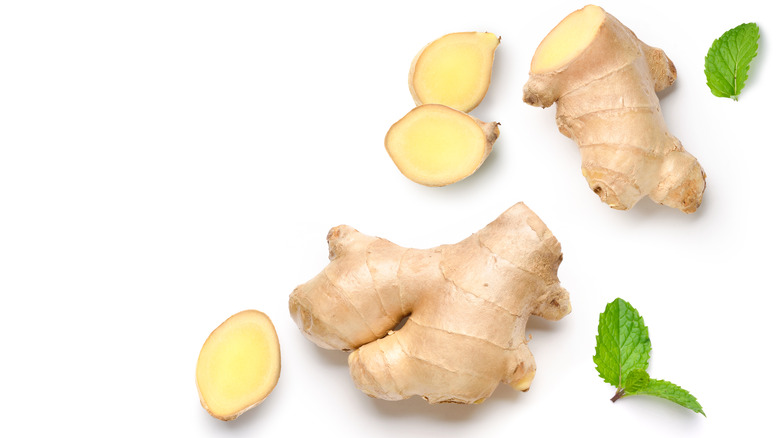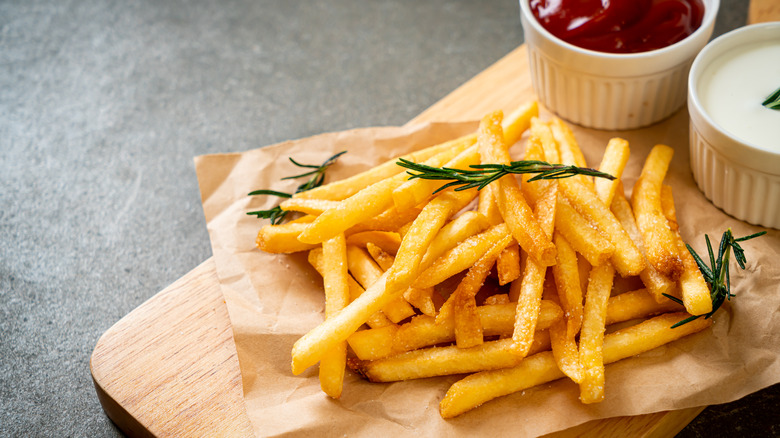Foods That Can Actually Help Your Digestion
Did you know that the health of your gut affects the wellbeing of your entire body? This makes sense, when you consider how the foods we eat fuel all of our bodily functions. Only a healthy gastrointestinal tract can properly digest food and deliver the nutrients we need through our bloodstream to keep us living and breathing.
Beyond enabling comfortable digestion, "a healthy gut contains healthy bacteria and immune cells that ward off infectious agents like bacteria, viruses and fungi," per UC Davis Health. And have you ever noticed our sneaky gut-brain connection? You know, when anxiety or nerves cause you to feel queasy (and in some cases, run to the bathroom)? According to Harvard Health, the relationship can go both ways: What you eat can absolutely affect your mental health. A whopping 60-70 million people in the U.S. have digestive diseases, and 72% deal with occasional issues like heartburn, constipation, gas, and abdominal pain. With these numbers, it's important we learn more about the foods that will help with digestion and improve our gut health.
Start with a balanced diet containing whole foods
The term "gut-health" became well-known over the last decade, along with the popularization of probiotics and fermented foods and drinks like kombucha. These are great supplements, but it's only by focusing holistically on our diets that we will truly see improvement in our gut health. To optimize digestion, Hopkins Medicine recommends that you consume an everyday diet of whole, unprocessed foods that are rich in healthy fats, fiber, and lean protein. It's no surprise that foods rich in fiber top this list.
Per Mayo Clinic, experts suggest that men aged 50 and younger should consume at least 38 grams of fiber each day, while women of the same age should consume at least 25 grams. If you aren't eating enough fiber now, then Medical News Today advises you slowly integrate it into your diet to avoid stomach upset. Start with soluble fiber such as oats, apples, spinach, bananas, and carrots, before adding in insoluble fiber like beans, cauliflower, potatoes, and whole grains.
Gastroenterologist Christine Lee recommends aiming for five to seven servings of fruits and vegetables daily, according to Cleveland Clinic. You can get creative with this, but try to eat as much local, in-season produce as possible. Combining unsaturated fats rich in Omega-3s with fiber will keep things moving and boost the absorption of vitamins, per Medical News Today. Foods like wild-caught salmon, olive oil, and avocados are excellent options that also have the perk of lowering inflammation (via Oregon Clinic). And, on top of what you eat, you'll also want to drink plenty of water and exercise.
Add these foods to optimize your digestion
In addition to a healthy diet filled with fresh fruits and vegetables, several natural foods can soothe our stomachs and aid in digestion. As Practitioner William Cole outlines for MindBodyGreen, wellness influencers swear by drinking a glass of lemon water in the morning to kickstart their digestion. It may be a trend, but Cole claims that it's still an effective one. "This whole-food fusion of vitamin C, phytonutrients, and prebiotic fiber also lends itself to leave the drinker with a cleansing-like effect, especially when drank first thing in the morning on an empty stomach," he said.
If you're experiencing nausea, bloating, or cramping — then it may be a good idea to check your food pantry versus your medicine cabinet. Both ginger and peppermint have been proven to relieve common stomach upset, according to Healthline. You can try incorporating both into your cooking, or in homemade teas to find relief. Additionally, Cleveland Clinic points out that probiotic-rich foods provide healthy bacteria that balance the gut's microbiome, and thus improve overall digestive health. Look for fermented foods like yogurt, kefir, kimchi, kombucha, and sauerkraut to include in your meals. Incorporating these bonus foods into your diet will prevent common digestive upset, and keep you feeling healthy and happy.
Avoid these foods to feel your best
If you're prone to an upset stomach or just looking to optimize your overall health, there are a few foods that are best to avoid. It will likely surprise no one that some of the top foods to skip out on are fried foods and fatty meats. These can be especially upsetting to those with IBS or bowel sensitivity, per John Hopkins Medicine. In fact, "High-fat foods can trigger contractions of the colon, and the high-fat content of red meat is just one reason to choose healthier options." The good news is if you include all the nutritious fruits, vegetables, and grains we mentioned above, then you won't have much room in your diet for greasy foods.
In addition, refined carbohydrates, high sugar, low fiber, and processed foods move through our bodies with such speed that issues like bloating, gas, and spiked blood sugar levels come as a result (via Manhattan Gastroenterology.) Lastly, if you've found yourself with stomach upset and are having trouble pinpointing why, you may want to consider removing lactose-heavy foods like soft cheeses, milk, and ice cream. It's certainly not fun to hear, but according to the NIH, 65% of the population has difficulty digesting lactose after the age of one.



